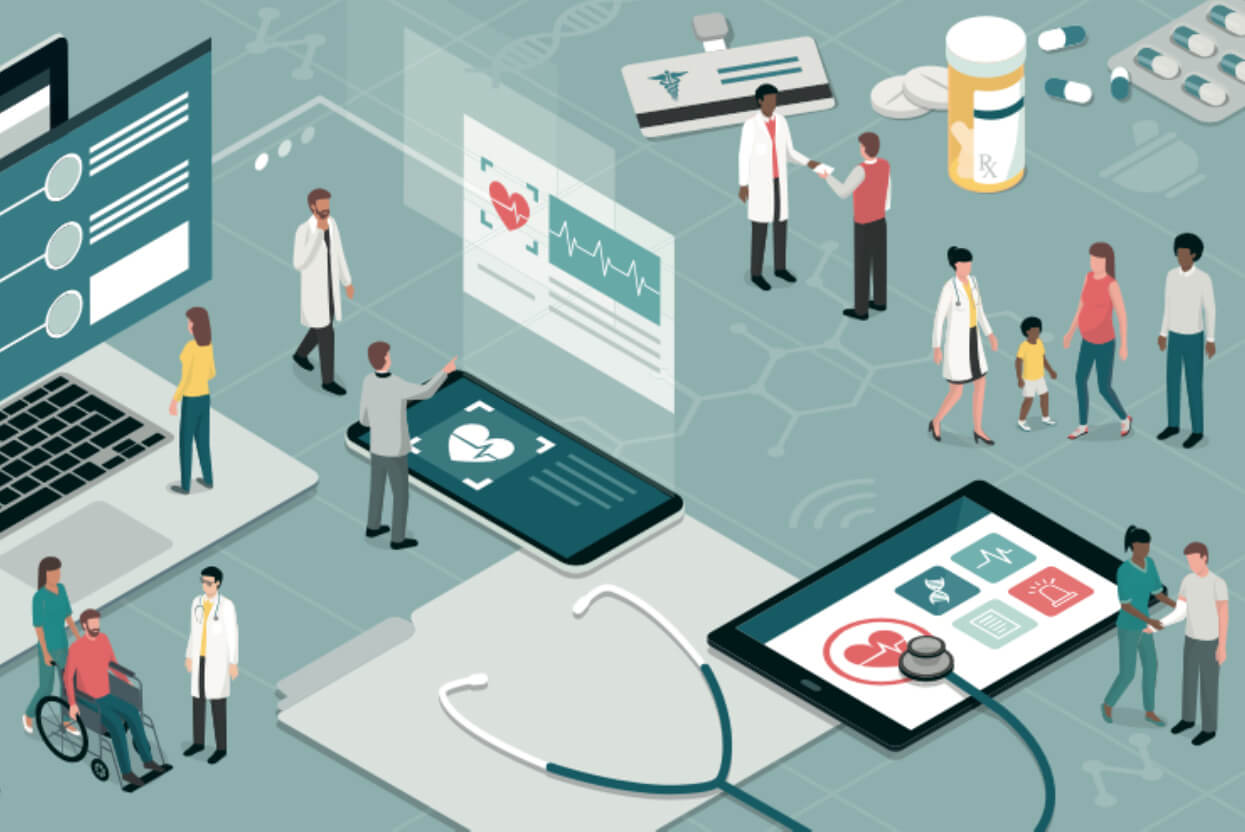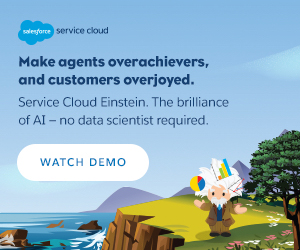This content was produced for Salesforce by the foundry @ MEREDITH CORP. FORTUNETM editorial staff was not involved in its creation or production.
In an increasingly interconnected world, customer experience isn’t just a priority—it’s fundamental. Customer relationship management (CRM) software and consumers’ quick uptake of self-service options are constantly raising the bar. New technologies can now fuse consumers, products, customer service representatives, and field service workers into a pulsing, constantly improving whole. And companies using these tools can boost client satisfaction to heights unforeseeable just a few short years ago.
Consider the IoT, for instance. Web-connected devices in cars, fridges, and even lightbulbs deliver information that has firms anticipating needs before their customers do. IoT helps businesses prevent dangerous or annoying equipment failures while developing personalized interactions that foster deep brand loyalty. Meanwhile, the cloud untethers traditional nine-to-five contact centers, making customer support possible 24/7. With data at their fingertips, agents solve problems faster too. Even better, the cloud encourages cost-saving self-service behaviors because customers access solutions painlessly on their own, using the gadget of their choosing.
All this has caused a seismic shift in enterprise. Some industries—like the three profiled here—are adapting with true agility.
Field Service: The Backbone of Remote Health Care
Radicalized by tech innovation, health care is a shining example. In fact, by 2015, more than half of Kaiser Permanente’s 11 million health plan members were interacting with hospital caregivers remotely, using smartphones, videoconferencing, and other technologies. Secure apps let medical personnel keep track of conditions, monitor symptoms, and help those in their charge follow best-case guidelines before and after surgeries. Users confidently send private messages, images, and readouts, giving doctors real-time information for prompt action.
Patients love the convenience and security, but these developments also mean equipment failure—on or off a hospital site—isn’t an option. Health care is one of the world’s most regulated industries, with good reason. Malfunctioning medical gear can cost lives, so field service has never been more important. The good news is that today field-service management software is helping technicians remotely monitor and maintain equipment long before problems occur. And when the human touch is called for, the same software schedules and tracks technicians, providing them with all the data they need via tablet or phone, on the spot. All this helps administrators establish a clear record of equipment installation, inspection, and repair for government review.
Field-service workers will never go away. But with the help of technology, they’re learning and sharing new skills that are making them more effective than ever.
 Photo: Getty Images
Photo: Getty Images
Self-Service: Hospitality in a Tap or Two
For its part, the hospitality industry is delighting customers and cutting costs with self-service apps that let travelers inspect, book, and check into their hotel rooms. Once they’re settled, guests can adjust room temperature, lighting, and call up entertainment—all with a tap or two. They can use the same app to request services, arrange transportation, and schedule activities. And when they’re ready to leave, they can access their account and check out without human intervention.
The information trail this creates also gives hoteliers access to travelers’ preferences and histories, which—when gathered, aggregated, and analyzed—can be utilized to stay competitive. One company doing this is Kimpton Hotels and Restaurants, which has created a unique loyalty program called Karma. Karma tracks guest activities to surprise them in purposely random ways. For example, when a happy customer uploaded an image of the yoga mat in her room, the hotel delivered one to her home. Gestures like that have rewarded Kimpton with the highest customer satisfaction scores (93%) of any hotel company in the U.S., according to the Market Metrix Hospitality Index.
CRM: Financial Services Reimagined
The once-stodgy financial services industry is also emerging as a major player in the fast-evolving world of digital customer contact—a move born out of necessity. With fintechs nipping at their heels, banks and wealth managers have had little choice. To hold on to their clients and attract new ones, they know they must deliver a concierge experience that shows they have a crystal-clear picture of their clients’ personal goals, dreams, and milestones. They understand that expectations have never been higher. Reacting doesn’t cut it with customers any longer. People are seeking proactivity—tuned-in, nimble advisors who can help them see around corners.
To address these new demands, advisors are turning to powerful CRM platforms. The right CRM merges and scrubs client data and makes it instantly accessible. It delivers apps that are upping advisor productivity by automating routine work. Advisors are also acting quickly on their customers’ behalf thanks to timely account and event alerts. And because CRM tools are device-agnostic, they can build binding relationships with clients no matter how they like to be reached.
The long and short of it is this: As new technologies come on line, it’s getting harder to make the case for separating field service, contact center activities, and even sales. That’s a good thing. Intricately linked, these functions now form and inform the customer experience to thrill, amaze, and keep your customers onside.







